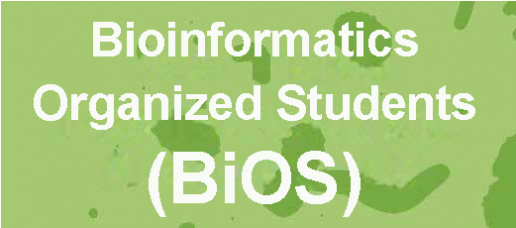Spring 2022 Student Seminars
January 19
Ahmed Youssef
Advisor: Andrew Emili
Title: Deconvolution of Bulk Proteomics Using Single-Cell Sequencing Data
Ab
Rebecca Panitch
Advisors: Lindsay Farrer & Gyungah Jun
Title: Understanding the Mechanisms and Pathways of Alzheimer’s Disease in APOE Genotype Sub-Population
Abstract:
The APOE ε4 allele is the strongest genetic risk factor for late onset Alzheimer disease (AD) and the ε2 allele is known to mitigate risk of AD. AD-related neurological and clinical traits have shown specific patterns depending on an individual’s APOE genotype. We investigated APOE genotype specific transcriptomic and methylation changes in both blood and brain to identify genes and biological pathways underlying the risk and protective mechanisms in AD.
February 2
Conor Shea
Advisors: Marc Lenburg and Avrum Spira
Title: Epithelial, stromal, and immune changes associated with lung squamous premalignant lesion severity identified by single-cell RNA-seq
Ab
February 16
Devlin Moyer
Advisors: Juan Fuxman Bass & Daniel Segrè
Title: Using Expression Data To Make Context-Specific Metabolic Models
Ab
Rebekah Miller
Advisor: Trevor Siggers
Title: Profiling COF Recruitment and Transcription Regulation Using an Array-Based Approach
Abstract:
Regulation of gene transcription is critical to the correct functioning of a cell, and its dysregulation can lead to disease. The set of transcription factors (TFs) and associated cofactors (COFs) that are present in a given cell type determine which genes are transcribed in that cell. TFs bind to specific DNA sequences found in regulatory regions known as enhancers and recruit specific COFs to these loci. The COFs then establish and maintain epigenetic modifications, such as histone acetylation and methylation marks, that affect the transcription of genes associated with that enhancer. We have developed a novel protein binding microarray-based approach (CoRec) to determine COF recruitment preferences in a cell-type specific manner, and we are planning to integrate these results with genomic data to examine how the genomic localization of these proteins affects the epigenome and ultimately regulates gene transcription.
March 2
Mengze (Vanessa) Li
Advisor: Stefano Monti
Title: yQTL pipeline design and QTL discovery in New England Centenarians Study
Ab
QTL discovery is a complex and computationally intensive process since it requires several processing steps, such as quality control of input genetic data, running association test on a large number of phenotypes, and post-processing of the QTL results. To tackle this problem, another part of my project is to develop a yQTL discovery pipeline using Nextflow to achieve an automation of the analysis process as well as the parallelization of computational tasks.
March 16
Kathryn Atherton
Advisors: Jennifer Bhatnagar & Daniel Segrè
Title: The Soil Network: Understanding how urbanization impacts microbial interactions
Ab
Yusuke Koga
Advisor: Joshua Campbell
Title: Replication of lung function decline signatures in a novel RNA-seq cohort
Ab




